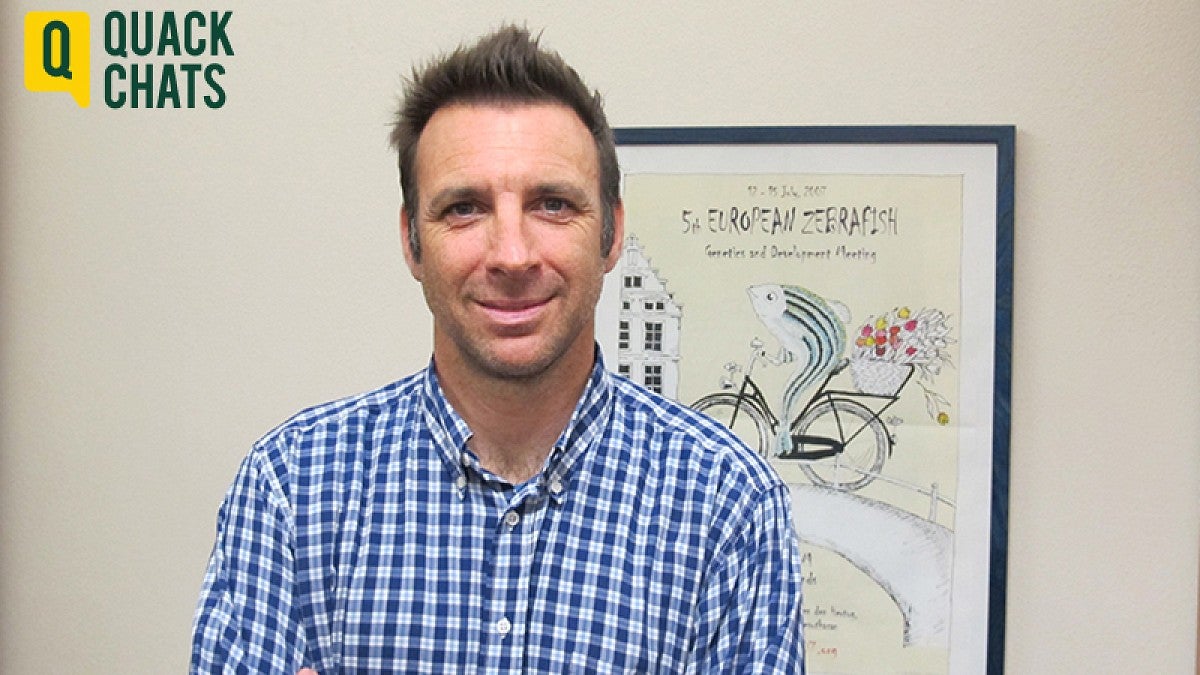If UO scientist Phil Washbourne has his way, zebrafish will be a model for the biology of social behavior and possibly drive new treatments for disorders such as autism and schizophrenia.
Such a realization, he admits, is “quite a few steps away,” but work in the Washbourne lab is laying the foundation.
Washbourne, a professor of biology and member of the Institute of Neuroscience, will provide an overview of his research at 6 p.m., Wednesday, July 11, in a Quack Chats pub talk. The event will be held at the Ax Billy Grill & Sports Bar, on the third floor of the Downtown Athletic Club, 999 Willamette St. Admission is free. Food and drinks are available for purchase.
Washbourne studies how synapses form. His research with zebrafish, a model organism developed at the UO, is at a basic level. He is trying to understand the fundamental biology of genes — and their individual components, such as the proteins and enzymes that turn them on and off — that are vital to the healthy development of synapses, which are essential to neuron-to-neuron communications in the brain.
“What we’re trying to do now is make a model of autism,” he said. “If and when we have a mutant zebrafish that has deficits in social behavior, then we can ask, what can we give that fish to improve its social interaction? That could lead to drug screens and testing.”
Washbourne began studying synapses as an undergraduate student at the Imperial College of London.
His interest carried through his doctoral research at the University of Padua in Italy and postdoctoral fellowships at the University of New Mexico and University of California, Davis. He joined the UO’s Department of Biology in 2004.
At UC-Davis, Washbourne’s work on brain synapses was supported by a fellowship from the university’s MIND Institute, which was founded in 1998. The acronym stands for Medical Investigation of Neurodevelopmental Disorders.
“Through this experience, I met a lot of parents of kids with autism,” Washbourne said. “You’d sit at dinner with the parents, and you’d be told their heart-wrenching stories. That really got me going on this research.”
At the UO, he continues to interact with people diagnosed with autism spectrum disorders and their parents.
“When you mess around with fish you seem far removed from the reality of the disorders, but interacting with parents and kids brings it all closer again,” he said. “It makes me optimistic that eventually we may be able to do something for children with autism.”
Quack Chats is a program of University Communications. For more information, see the Quack Chats section on Around the O. A general description of Quack Chats and a calendar of additional Quack Chats and associated public events also can be found on the UO’s Quack Chats website.
—By Jim Barlow, University Communications


